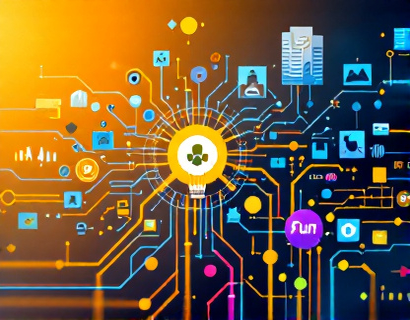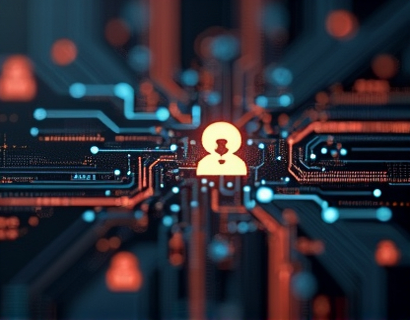Transforming Education with AI-Driven Chatbots: A Comprehensive Guide for Students, Families, and Educators
The integration of artificial intelligence in educational settings has opened new avenues for learning, making knowledge more accessible and personalized than ever before. Among these innovations, AI-driven educational chatbots stand out as a powerful tool, offering specialized insights tailored to the needs of students, families, and educators. This article delves into the capabilities and benefits of these chatbots, focusing on how they provide industry-specific knowledge and services while ensuring a safe and educational experience for all users.
Understanding AI-Driven Educational Chatbots
AI-driven educational chatbots are sophisticated software applications designed to simulate conversation through natural language processing and machine learning algorithms. These chatbots can understand and respond to user queries in a human-like manner, providing instant and accurate information on a wide range of topics. In the context of education, these chatbots serve as virtual assistants that can guide students through complex subjects, offer personalized learning recommendations, and provide families and educators with valuable insights into industry trends and best practices.
Specialized Insights for Students
For students, AI chatbots are invaluable resources that can enhance their learning experience. These chatbots can offer detailed explanations of academic concepts, assist with homework and project work, and even provide test preparation support. One of the key advantages of using AI chatbots in education is their ability to deliver content that is both accurate and relevant. The chatbots are programmed with extensive databases of verified information, ensuring that the insights provided to students are reliable and up-to-date.
Moreover, AI chatbots can adapt to the individual learning pace and style of each student. By analyzing user interactions, these chatbots can identify areas where a student may be struggling and offer targeted resources or additional explanations. This personalized approach not only helps in reinforcing learning but also boosts student confidence and engagement.
Industry Knowledge for Educators
Educators play a crucial role in shaping the future of education, and AI chatbots can significantly support their efforts. These chatbots can provide teachers with the latest research, teaching methodologies, and industry insights, helping them stay current and effective in their roles. For instance, a chatbot can offer detailed information on new educational technologies, pedagogical approaches, and best practices in classroom management.
Additionally, AI chatbots can facilitate collaboration among educators by connecting them with peers and experts in their field. This network effect allows teachers to share resources, discuss challenges, and learn from each other's experiences. The chatbots can also assist in curriculum development by suggesting relevant materials and resources based on the latest educational standards and industry requirements.
Family Engagement and Support
Parents and guardians are essential partners in the educational journey of their children. AI chatbots can bridge the gap between schools and families by providing accessible and understandable information about student progress, school events, and educational resources. These chatbots can send personalized updates on a student's performance, highlight areas of improvement, and offer tips for supporting learning at home.
Furthermore, AI chatbots can help address common concerns and questions that families have about the educational system and specific subjects. By offering clear and concise answers, these chatbots empower parents to better support their children's education and foster a positive learning environment at home.
Ensuring Safety and Educational Value
One of the primary concerns when integrating technology into education is ensuring the safety and well-being of users, especially children. AI-driven educational chatbots are designed with robust safety measures to create a secure and educational environment. These chatbots are programmed to adhere to strict content guidelines, filtering out any inappropriate or harmful information. Additionally, they can be configured to operate in child-friendly modes, using simpler language and more engaging visuals to cater to younger audiences.
Content verification is another critical aspect of these chatbots. All information provided is cross-verified from multiple trusted sources to ensure accuracy and reliability. This commitment to accuracy not only enhances the educational value of the chatbot but also builds trust among users. Educators and parents can confidently recommend these chatbots to students, knowing that the content is both safe and educational.
Industry-Specific Insights and Services
AI chatbots can offer specialized insights into various industries, making them valuable resources for students and educators exploring specific fields. For example, in the healthcare industry, a chatbot can provide information on the latest medical research, career paths, and educational requirements. In the technology sector, it can offer insights into emerging trends, programming languages, and job market demands.
These chatbots can also guide users through the process of exploring different career options within an industry. By analyzing user interests and providing relevant data, the chatbot can help students make informed decisions about their future careers. This level of personalized guidance is particularly beneficial in fields where career paths can be complex and diverse.
Interactive Learning Experiences
Beyond providing information, AI chatbots can create interactive learning experiences that engage students and enhance understanding. Through conversational interfaces, these chatbots can present concepts in a more dynamic and interactive way, using quizzes, games, and simulations to reinforce learning. This interactive approach not only makes learning more enjoyable but also helps in retaining information better.
For instance, a chatbot can simulate a virtual lab environment where students can conduct experiments and observe outcomes in real-time. This hands-on approach is particularly useful in subjects like science and engineering, where practical application is crucial for understanding theoretical concepts.
Collaboration and Community Building
AI chatbots can also foster a sense of community among students, educators, and families. By creating forums and discussion groups within the chatbot platform, users can connect with peers and experts, share ideas, and collaborate on projects. This community aspect is especially beneficial for students who may feel isolated or need additional support outside the classroom.
Educators can use these platforms to facilitate group projects, assign collaborative tasks, and monitor student progress in a more interactive and engaging way. Families can stay informed about school activities and participate in discussions, creating a more inclusive and supportive educational ecosystem.
Challenges and Considerations
While AI-driven educational chatbots offer numerous benefits, there are also challenges and considerations that need to be addressed. One of the main challenges is ensuring that the chatbots are user-friendly and accessible to all students, including those with disabilities. Developers must adhere to accessibility standards and incorporate features like text-to-speech, adjustable font sizes, and clear navigation to make the chatbot usable for everyone.
Another consideration is the continuous updating and maintenance of the chatbot's knowledge base. The educational landscape is constantly evolving, and the chatbot must be regularly updated with the latest information to remain relevant. This requires a dedicated team to monitor and update the content, ensuring that the chatbot remains a reliable resource.
Conclusion
AI-driven educational chatbots represent a significant advancement in the way we approach learning and education. By providing specialized insights, ensuring content verification, and creating interactive and safe learning environments, these chatbots are transforming the educational experience for students, families, and educators. As technology continues to evolve, the potential for AI chatbots in education is vast, offering new opportunities for personalized learning, community building, and industry engagement. Embracing these innovations can help create a more inclusive, effective, and engaging educational system for all.











































